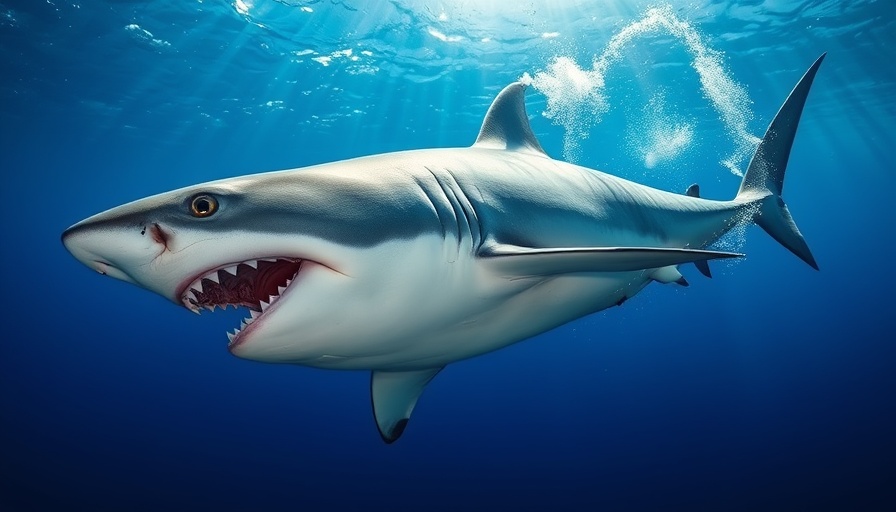
Shifting Ecosystems: The Surge of Great White Sharks in New England
The increasing presence of great white sharks along the New England coast is not merely a seasonal anomaly; it's a reflection of changing marine ecosystems tied to climate change. Fishermen and beachgoers in Maine have observed sightings of these majestic predators, once rare in the area, now frequently seen due to a growing seal population, which serves as their primary food source. As seal numbers increase — a result of successful conservation efforts — the white shark population is following suit.
Understanding the Northern Movement
Research shows that sightings of great whites off Cape Cod have become more common over the years, and scientists are now recording their movement further north into New Hampshire and even Halifax, Nova Scotia. According to sport fisheries biologist Greg Skomal, the population detected off Nova Scotia rose 2.5 times between 2018 and 2022. Moreover, the resonance of these sharks in northern waters — measured in days spent in the environment — has also seen a considerable increase. This trend indicates that great whites are not just passing through but are finding habitats where they feel comfortable.
Safety in the Waters
The rise in shark sightings raises safety concerns among swimmers and fishermen alike. However, experts assure that the risk of shark bites remains relatively low. With thousands of beachgoers gracing New England's waters every summer, the presence of great whites serves as a reminder of the delicate balance in our marine ecosystems. For most, these encounters only add to the allure of ocean life, urging people to respect marine wildlife.
Informed Decisions for Beachgoers and Fishermen
For those who frequent coastal regions, understanding the dynamics of marine life is crucial. Awareness of these predators promotes safer beach experiences. It is an opportunity for local businesses in tourism and fishing communities to educate their clients about marine life and promote safe practices, thus creating a more informed and responsible community around water activities.
Conclusion: Navigating Change in Our Waters
The changing dynamics of marine wildlife along the New England coast highlight significant ecological trends influenced by environmental factors. The increase of great white sharks reflects both the successes of conservation efforts for seals and the broader impacts of climate change on ocean ecosystems. Beach lovers, fishermen, and various stakeholders in the local economy benefit from embracing these changes, ensuring informed participation in a rapidly evolving water world.
 Add Row
Add Row  Add
Add 



Write A Comment